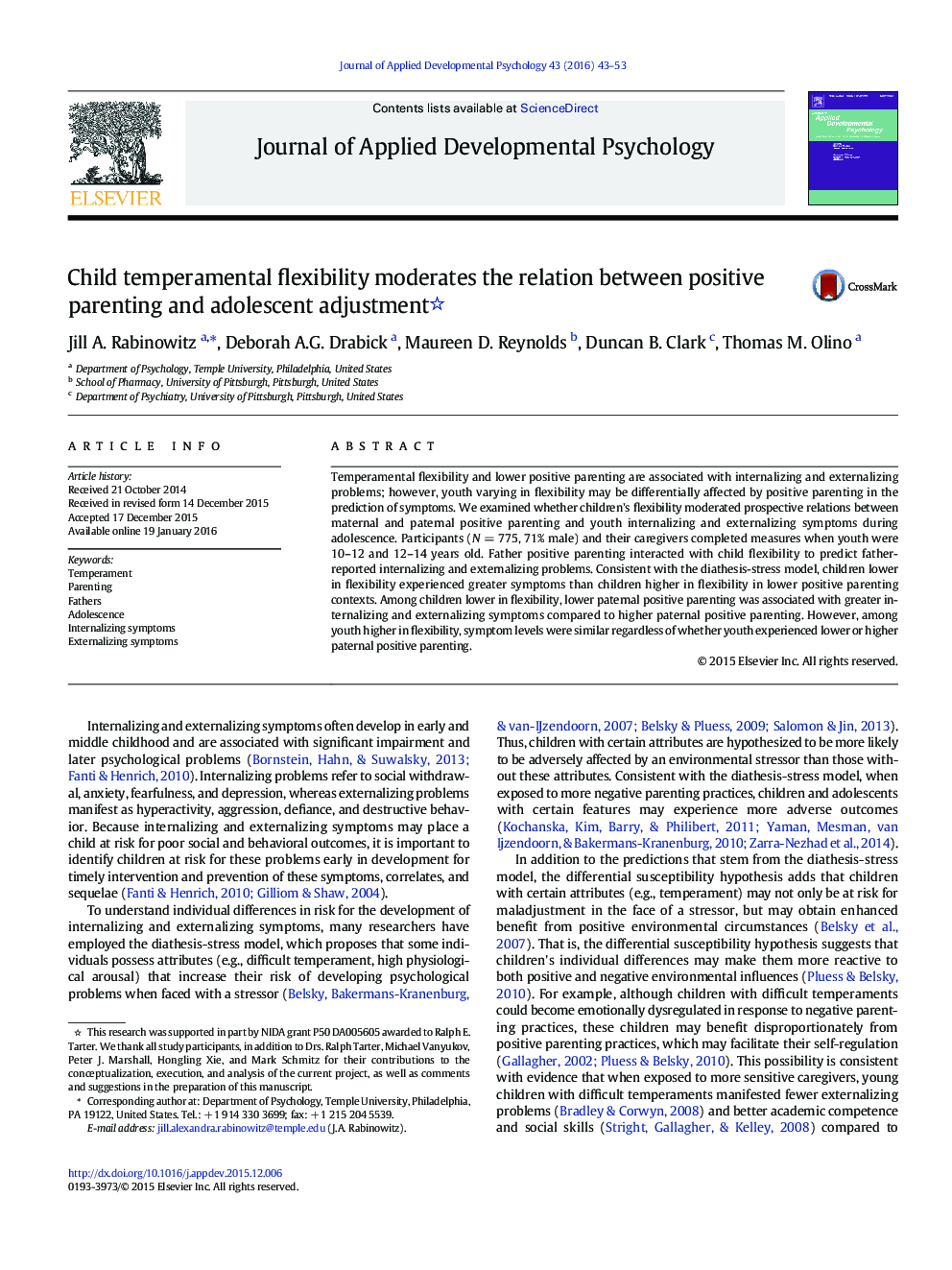| Article ID | Journal | Published Year | Pages | File Type |
|---|---|---|---|---|
| 359591 | Journal of Applied Developmental Psychology | 2016 | 11 Pages |
•We explored positive parenting on youth low in flexibility in predicting symptoms.•Findings are largely consistent with the diathesis-stress model.•Youth lower in flexibility had more symptoms in low positive parenting contexts.•Youth lower in flexibility were more affected by context than flexible youth.•Intervention and policy implications are discussed.
Temperamental flexibility and lower positive parenting are associated with internalizing and externalizing problems; however, youth varying in flexibility may be differentially affected by positive parenting in the prediction of symptoms. We examined whether children's flexibility moderated prospective relations between maternal and paternal positive parenting and youth internalizing and externalizing symptoms during adolescence. Participants (N = 775, 71% male) and their caregivers completed measures when youth were 10–12 and 12–14 years old. Father positive parenting interacted with child flexibility to predict father-reported internalizing and externalizing problems. Consistent with the diathesis-stress model, children lower in flexibility experienced greater symptoms than children higher in flexibility in lower positive parenting contexts. Among children lower in flexibility, lower paternal positive parenting was associated with greater internalizing and externalizing symptoms compared to higher paternal positive parenting. However, among youth higher in flexibility, symptom levels were similar regardless of whether youth experienced lower or higher paternal positive parenting.
